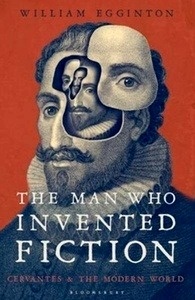The Man Who Invented Fiction

Editorial Bloomsbury Publishing PLC
Fecha de edición abril 2016 · Edición nº 1
Idioma inglés
EAN 9781408843840
272 páginas
Libro
encuadernado en tapa blanda
Resumen del libro
'In 1605 a crippled, greying, almost toothless veteran of Spain's wars against the Ottoman Empire published a book. That book, Don Quixote, went on to sell more copies than any other book beside the Bible, making its author, Miguel de Cervantes, the most widely read author in human history. Cervantes did more than just publish a bestseller, though.
He invented a way of writing.' In Cervantes' time, 'fiction' was synonymous with a lie. Books were either history, and true, or 'poetry' which might be invented, but had to conform to strict principles. Don Quixote tells the story of a poor nobleman, addled from reading too many books on chivalry, who deludes himself that he is a knight errant and sets off to put the world to rights.
The book was hugely entertaining, broke the existing rules, devised a new set and, in the process, created a new, modern hybrid form we know today as the novel. The Man Who Invented Fiction explores Cervantes's life and the world he lived in, showing how his life and influences converged in his work, and how his work - especially Don Quixote - radically changed the nature of literature and created a new way of viewing the world. Finally, it explains how that worldview went on to infiltrate art, politics and science, and how the world today would be unthinkable without it.
Biografía del autor
William Egginton, crítico literario y filósofo, es profesor Decker de Humanidades, catedrático del Departamento de Lenguas y Literaturas Modernas y director del Instituto de Humanidades Alexander Grass de la Universidad Johns Hopkins. Es autor de múltiples libros en los que trata temas de filosofía, religión, literatura e historia, entre otros.








